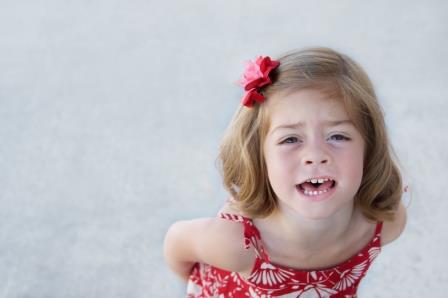While most mental health disorders in adults begin developing from childhood, the symptoms that children experience tend to be very different from those seen in adults.
In very young children, symptoms of mental disorders are also a lot harder to identify because of their immaturity. Very young children cannot identify their own behaviours or moods and certainly don’t have the vocabulary or developmental ability to express their concerns.
Many parents just do not know the signs of a disorder, and may not be able to distinguish problem behaviours, from normal childhood ones.
A number of Australian studies have indicated that a proportion of children five years and younger, show signs of developing a mental illness as they mature into adolescence and adulthood. The findings highlight the importance of targetting young children, identifying warning signs and providing early intervention strategies to help them and their parents manage the symptoms.
Mental Health Disorders in Children
While experienced differently, very young children can experience a range of mental health disorders such as:
Anxiety Disorders: Young children can experience feeling anxiety some or all the time, as a result of such issues as post-traumatic stress, perhaps due, for example, to family conflict and separation, violence or death, social phobia (where the child is too shy and afraid to meet others, and may suffer separation anxiety if forced to leave their mothers). Young children may also experience the early signs of OCD (obsessive compulsive disorder).
Autism Spectrum Disorder (ASD): The symptoms of this serious developmental disorder appear in children before the age of three. While the degrees of severity differ, as a general rule, ASD seriously impacts on a child’s ability to communicate and effectively interact with other children and adults.
Mood Disorders: Mood disorders such as depression can cause a child to feel sad and irritable, or to withdraw, and not want to participate in activities. Alternatively, some children may be developing bipolar disorder where they experience extreme mood swings, more than what is considered normal ups and downs.
Schizophrenia: The chronic mental disorder, schizophrenia, causes a child to lose contact with reality and so a child may, for example, be seen talking away to people who are not present. However, in such disorders as schizophrenia, symptoms tend to appear more obviously by adolescence and continue into adulthood.
Attention Deficit Hyperactivity Disorder (ADHD): Here the child may experience difficulties in paying attention, and suffer hyperactivity and impulsive behaviour. Some children experience symptoms in all or some of these three categories.
Sensory Processing Disorder: This disorder found in young children occurs where they have difficulty integrating and responding to information from different senses in all settings. They may experience extreme discomfort with certain stimuli such as loud noises. The nervous system struggles to integrate input from all the senses, which develops into a chronic concern for the child. Secondary symptoms such as depression and anxiety can also develop. By its nature, children with this diagnosis display symptoms that look like ADHD – hyperactivity, poor attention and impulsivity, although the treatment is different.
Could My Child have a Mental Health Disorder?
Signs to look for, if you are concerned your child may have a mental health disorder, include:
- Mood changes;
- Very strong feelings such as extreme fear;
- Drastic and often out of control changes in behaviour and personality;
- Fighting and using weapons and attempting to hurt others;
- Some children may wish to hurt themselves;
- Difficulties with focus and paying attention, or sitting still.
Because children do not have the developmental maturity to express themselves appropriately, they may develop such physical symptoms as stomach problems and headaches, instead of the usual symptoms expressed by an adult.
If, as a parent you are concerned about your young child’s behaviour, consult your doctor as soon as you can. Your doctor will then refer your child to a psychiatrist or psychologist if necessary for treatment.
Medication may be recommended to help treat your child’s condition, however usually the treatment involves psychotherapy, and, especially, support for the parents to help them manage and understand the symptoms. Often parents feel helpless and frustrated as to how to cope with their child so this support can be invaluable.
 Author: Dr Jan Philamon, PhD, BA (Hons) Psychology, C Teach, JP (Qual) Qld, MAPS.
Author: Dr Jan Philamon, PhD, BA (Hons) Psychology, C Teach, JP (Qual) Qld, MAPS.
As a registered teacher and psychologist, Dr Jan Philamon has a wealth of experience with children, however she enjoys helping individuals and couples at any stage of life. Jan aims to help people to be the best they can be and find success: improved wellbeing, gaining a sense of empowerment that allows them to actively problem solve and manage obstacles constructively, as well as positively plan and achieve their personal and career goals.
To make an appointment try Online Booking. Alternatively, you can call M1 Psychology Brisbane on (07) 3067 9129
